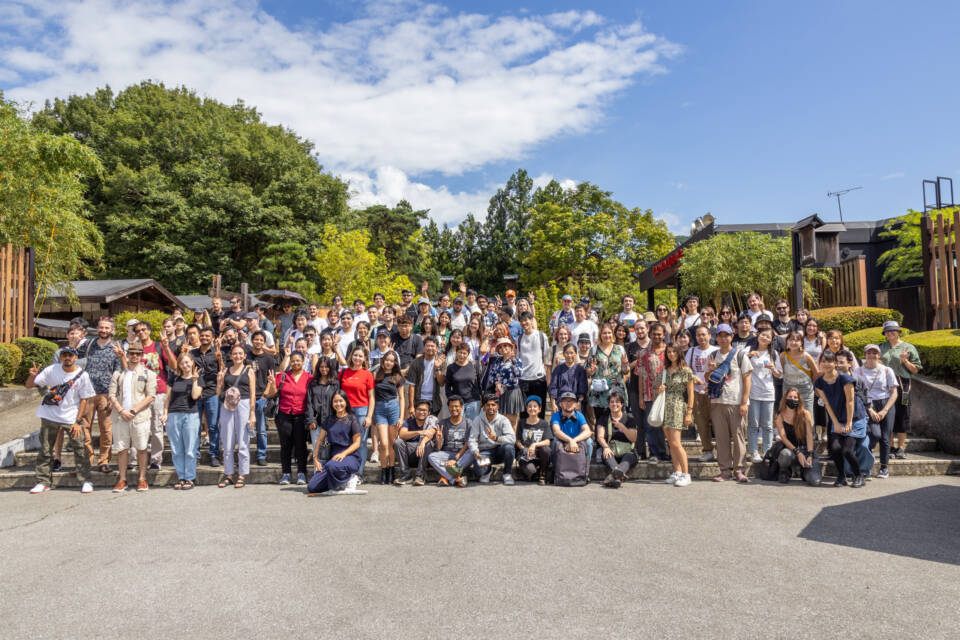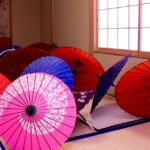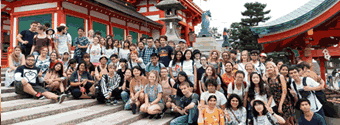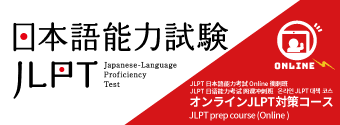10 Things You Should Know Before Attending a Japanese Language School in Tokyo
Category: Diary, Information

Hello! My name is Masuda and I work at Kudan Institute of Japanese Culture & Language. Every day, I speak with many people from overseas and often receive the question, “What criteria should I use when choosing a Japanese language school in Tokyo?”
It’s true that Tokyo has a vast number of Japanese language schools, and it’s easy to get lost deciding where to go. Today, I’d like to share 10 key points I’ve noticed through my daily interactions with students—things that are absolutely worth knowing! (*Please note that the fees and contents listed are as of June 2025 and may change.)
1. Location and Accessibility of the Japanese Language School
When choosing a Japanese language school in Tokyo, location is the first thing to consider. Since you’ll be commuting every day, selecting a school with convenient transportation is highly recommended!
If you have to transfer trains too many times, you’ll be exhausted by the morning rush and your risk of being late increases. Ideally, the school should be within a 10-minute walk from the nearest station and require no more than one transfer.
Also, check what’s available around the school. It’s very convenient if there are essential facilities nearby, like convenience stores, restaurants, and banks. Especially during lunch, it’s a good idea to check whether there are affordable eateries within walking distance of the school.
For reference, our school—Kudan Institute of Japanese Culture—is located just a five-minute walk from Suidobashi Station in Chiyoda Ward, making it easily accessible even if you live anywhere in central Tokyo.
2. Choosing Courses that Match Your Goals
Japanese language schools offer a variety of courses. Some people “just want to learn Japanese,” while others have specific goals like “passing the JLPT,” “acquiring Japanese for business,” or “enjoying Japanese while learning about the culture.”
First, clearly define why you want to learn Japanese and the level you wish to reach. The best course will depend on your objectives.
- For comprehensive learning: General courses that cover everything from basics to advanced
- For those focused on conversation: Speaking-focused courses
- For test preparation: JLPT preparation courses
- For business purposes: Business Japanese courses
- For those interested in culture: Courses that include both Japanese and cultural studies
Course types and content vary greatly by school, so it’s recommended to compare several. Our school offers a variety of courses such as General Japanese, Conversation, and Beginner Practical Courses. Our cultural courses, including Sushi and Tea Ceremony, are especially popular!
3. Can You Learn Japanese Culture Alongside the Language?
Understanding a country’s culture is extremely important when learning its language. To grasp the delicate nuances of Japanese and Japanese ways of thinking, you absolutely need cultural background.
Many Japanese language schools in Tokyo touch on Japanese culture in their lessons, but be sure to check whether they offer deeper cultural experiences. Some schools provide unique cultural programs, ranging from traditional experiences like tea ceremony, flower arrangement, and calligraphy to modern pop culture.
Our school also offers unique cultural courses: Manga, Sushi in partnership with Ginza Onodera, Kintsugi (traditional ceramics repair), Tea Ceremony, and more. Even beginners can participate!
These are very well received—some alumni have said that “these classes were the most enjoyable memories of my stay in Japan!” Please feel free to contact us if you’re interested!
4. Quality of Learning Environment and Facilities
The learning environment greatly influences your Japanese progress. Check if the classrooms are well equipped, there is a library or study space, and whether the Internet is available—keys to being able to concentrate on studies.
The scale of the school is also important. If it’s too large, individual attention may be lacking; if too small, services might be limited.
Class size matters too. If there are too many students in one class, opportunities to speak decrease.
Confirm that the school provides good communication with teachers and that you can easily ask questions when you have them.
If you want an international learning environment, choose a school with students of various nationalities. Our school welcomes students from all over the world, where they inspire each other and build lifelong friendships and cultural exchanges alongside improving their Japanese skills!
5. Quality of Teachers and Teaching Methods
The quality of the teachers is one of the most important aspects of choosing a Japanese language school. Check whether the school has highly qualified and experienced instructors and whether the teaching methods suit your learning style.
- Qualified in Japanese language education with relevant experience
- Can tailor instruction to each student’s level and goals
- Teach practical Japanese, not just grammar
- Are knowledgeable about Japanese culture and customs
If possible, attend a trial lesson to check compatibility with the teacher.
Don’t hesitate to ask questions during your trial lesson if you have any doubts or concerns!
6. Availability of Online Learning Options
Nowadays, online Japanese learning is becoming common. If you want to build basics before arriving or are unable to commute, online courses are decisive.
Online courses also allow you to study and improve wherever you live—making this a key point.
Kudan Institute of Japanese Culture & Language offers diverse online courses:
- JLPT Preparation Course
- Business Japanese Brushup Course
- Job Preparation Course
- Online Private Lessons
- Online Tea Ceremony Lessons
- Japanese Teacher Training Course
These courses enable you to start studying before coming to Japan or if you live far away.
7. Support System for Accommodation
Securing accommodation is a big challenge for many who come to study Japanese in Tokyo—especially for first-timers who may struggle without Japanese language skills.
It’s reassuring to choose a school that offers reliable introductions to accommodation and support for finding housing.
Types of accommodation and their features:
- Homestay: Live with a Japanese family and use Japanese daily
- Student Dormitory: Interact with peers from your school, relatively safe
- Share House: International environment and lower costs
- Apartment: Privacy and independence
At Kudan Institute, a wide range of accommodation support options are available. Homestay lets you experience Japanese family life and culture (minimum 2 weeks, 2 meals on weekdays, 3 on weekends/holidays). More independent options include share house/guest house/apartment (minimum 1 month, no meals).
You can choose from plenty of options based on your preferences, so please consult our staff if you need support.
8. After-Graduation Support System
If your goal is employment or further education, after-graduation support is another important criterion. Check whether the school offers help with resume writing, interview practice, and job information.
If you’re aiming to find a job in Japan, check:
- Employment rate records
- Partnerships with companies
- Availability of career counseling
- Alumni network connections
Some things may be hard to confirm just from the website, so consider contacting the school directly or checking during a trial lesson.
Clarifying the ideal outcome after graduation is crucial. Make sure the school matches your career goals.
Kudan Institute offers comprehensive support for long-term students, including resume checks, job info, interview practice, and personalized counseling.
9. Visa and Part-Time Job Knowledge
If you’ll be studying long-term in Japan, understanding visa types and part-time job regulations is essential.
Review these key points about visas:
-
Student Visa:
- Part-time work allowed up to 28 hours per week
- Requires “Permission to Engage in Activity other than that Permitted”
- Higher Japanese proficiency makes finding work easier
-
Tourist Visa:
- Part-time work not permitted
- Only for short-term study
-
Employment:
- Most companies require JLPT N1, at least N2
- Required Japanese level varies by industry
Whether the school can advise on these procedures is also a critical point in your selection.
10. Cost Effectiveness and Fee Structure
Lastly, perhaps the most important aspect: fees! Don’t choose just based on price—it’s vital to consider the quality of education, services, and whether the offering matches your goals, weighing all the points above.
Key expenses to confirm:
- Enrollment fee
- Tuition
- Materials fee
- Accommodation costs
- Other fees (airport pickup, extracurricular activities, etc.)
Kudan Institute offers many short-term courses from as little as two weeks. Example fees:
- Beginner Practical/Conversation Course (4 weeks): ¥102,000
- Manga Course (1 month): from ¥162,000
- Sushi Course (1 month): ¥200,000
- Short-term Tea Ceremony Course (8 classes): ¥40,000
- Kintsugi Course (1 month): ¥152,000
These fees do not include accommodation but feature a transparent fee structure.
For first-timers to Japan, paid airport pickup is available from Narita or Haneda, reducing anxiety about arriving. If you have any questions about overall costs, feel free to inquire with our staff. Understanding the fee breakdown is critical when choosing—so there are no surprises later!
Summary
When choosing a Japanese language school in Tokyo, it’s essential to consider these 10 points. Comparing several schools will help you find the one best suited to your goals, budget, and lifestyle.
School selection takes time, so it’s best to start early and reach out to schools you’re interested in as soon as possible.
Above all, clarify why you want to study Japanese. If you’re clear about your purpose, you’ll be able to overcome any difficulties that arise.
At Kudan Institute of Japanese Culture & Language, we fully support your Japanese learning journey. We help our students not only master Japanese but also enrich their study-abroad experience through daily life and cultural experiences in Japan.
If you’re considering studying Japanese in Tokyo, please do not hesitate to contact us. We sincerely hope your journey in learning Japanese will be a wonderful one!
More from my site
タグ: English
2025年9月27日 土曜日 11:53 AM Category: Diary, Information.

















